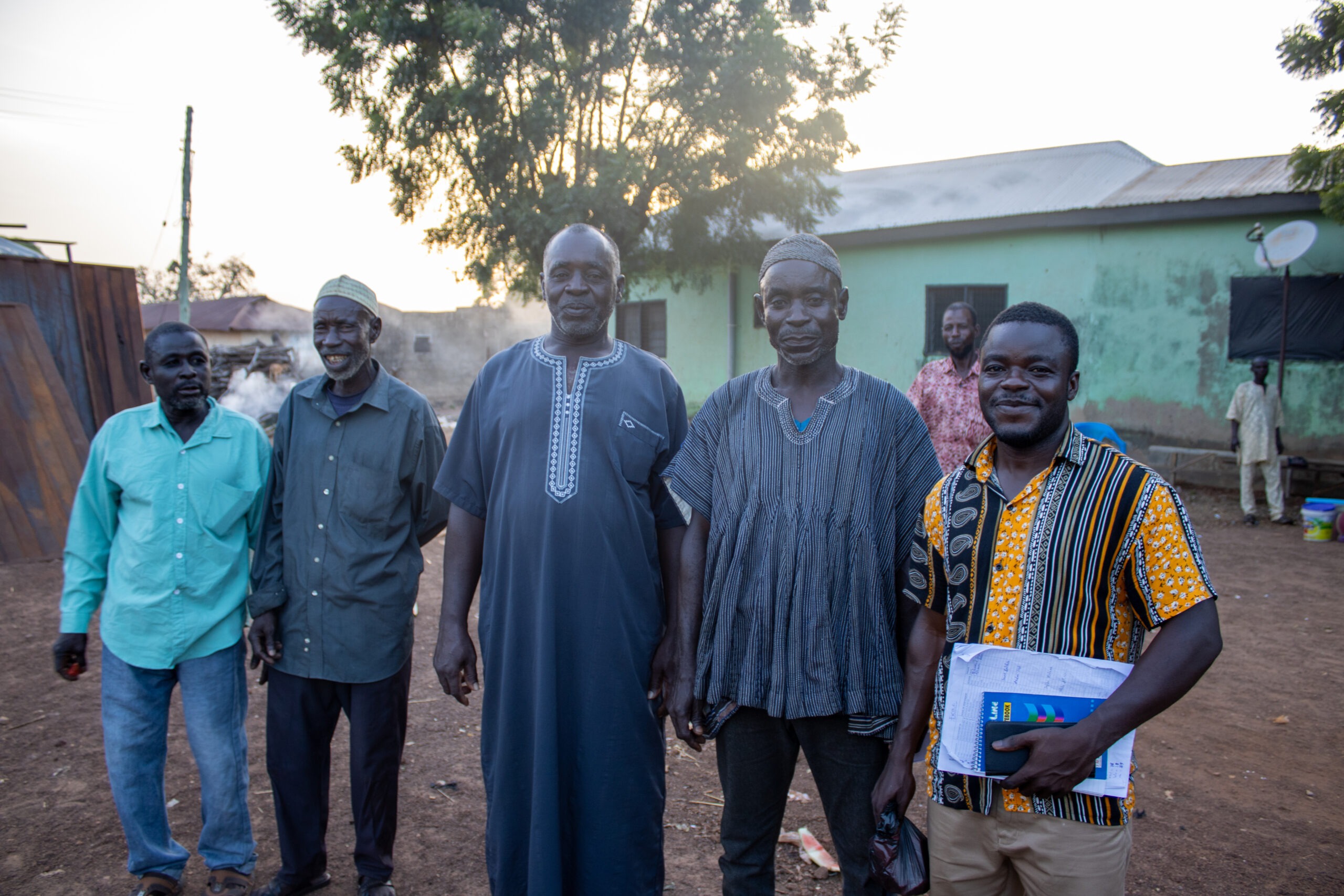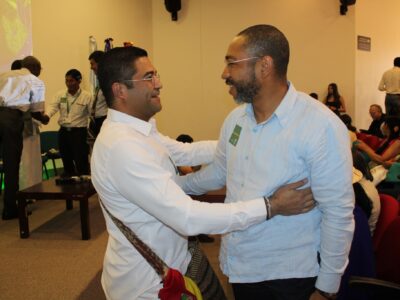
About this series
ACDI/VOCA integrates thinking and working politically (TWP) into our inclusive market systems (IMS) approach to development in a way that facilitates system-level changes that are politically smart and feasible. TWP is an approach of the U.S. Agency for International Development (USAID) and others that stresses the importance of understanding the local context (“thinking politically”) to help communities create sustainable change (“working politically”). After all, a community is heavily influenced by its local interests, values, power dynamics, and motivations. TWP recognizes the power politics have on which technical approaches work and which do not.
As such, TWP requires a few things: (1) strong political analysis, insight, and understanding; (2) responsiveness to the local context, including by working with and through local stakeholders; and (3) flexibility and adaptability in program design and implementation. These principles are readily integrated into the four phases of ACDI/VOCA’s IMS approach: (1) analyze; (2) strategize; (3) collaborate and facilitate; and (4) monitor, evaluate, learn, and adapt. (Dig deeper into how we integrate TWP into our IMS approach.)
We are pleased to contribute to the growing body of evidence on the importance of politically aware and adaptive development. For our own organizational learning and to improve our programs’ outcomes, we conducted a series of case studies on locally led approaches to TWP in Colombia, Ghana, and Mozambique.
Processes of Policy Change in Ghana
This case study features the Feed the Future Ghana Market Systems and Resilience (MSR) Activity, funded by USAID and implemented by ACDI/VOCA. MSR uses policy dialogue, locally determined change processes, and targeted capacity strengthening to ensure improved policy development and implementation processes in northern Ghana. Learn more about this case below.
Beyond mechanism management: MSR partners to enhance policy dialogue and facilitate change
Incomplete decentralization stifles agricultural sector growth
Since 1993, Ghana has moved toward locally led agricultural policy implementation to improve access to services and increase accountability. In 2016, the Government of Ghana passed Act 936 to integrate the Department of Agriculture into local government systems, thus decentralizing authority for policy implementation from the central to the local government.
Still today, local government is not effectively engaging with the private sector. The incomplete decentralization is limiting coordination and effectiveness and causing poor enforcement of regulations and standards in the agriculture sector, such as those related to food safety, sanitary and phytosanitary systems, and input delivery systems. Assisting with this decentralization process is part of MSR’s efforts to improve the enabling environment for private sector development.
Drawing on political economy analysis to map local power dynamics and policy processes
MSR’s political economy analysis (PEA) and Systems Diagnostic informed its vision for systems change in northern Ghana, which is that “policy development and implementation is effectively carried out by capable local stakeholders through public private dialogue (PPD) that is regular, inclusive, demand-driven, and evidence based.”
MSR employed a stakeholder mapping exercise and it’s Policy Development and Implementation Methodology (PDIM) to determine potential partners who could strengthen PPD processes in each district. Entry points and partnership activities to achieve the project’s vision for systems change were vetted and validated through stakeholder consultations in 17 districts of the Feed the Future Zone of Influence in northern Ghana. This approach aligns with MSR’s participatory and facilitative TWP approach to systems development, which demands engagement from a diverse range of market actors, including women and youth and formal and informal entities.
Active, multi-level partnerships strengthen capacities for locally led policy coordination
The initial analysis informed MSR’s portfolio of partnership engagement at the district and national levels. As an agriculture-focused project, MSR focuses on strengthening District Value Chain Committees (DVCCs) so they are empowered and included in the policy system at the local level as part of national decentralization processes. In support, MSR assists in making agricultural policy implementation and coordination processes stronger.
MSR is first focusing on re-orienting DVCCs as platforms for agriculture sector policy advocacy and feedback at the district level. Then, MSR will target its capacity strengthening assistance on district governments’ technical and oversight functions and strengthening private sector stakeholders to engage in PPD platforms.
Examples of partnerships in northern Ghana
MSR’s assistance to local market actors varies based on their needs and goals and may relate to technical know-how or governance and political action. For instance, MSR partners with the Food and Drugs Authority (FDA) and the Ghana Standards Authority (GSA) to train micro, small- and medium-sized enterprises on food standards, certification processes, and business formalization processes. The goal is to support a closer relationship between the GSA and its constituents to improve trust and familiarity. Based on learnings from the training, MSR supported the FDA and GSA to develop a strategic communications program to educate the private sector and citizens on food safety and standards compliance.
Through its partnerships with associations, like the National Seed Trade Association of Ghana (NASTAG), MSR supports engagement in value-chain and issue-specific PPD. So far, project-supported PPD has focused on priority topics of seed systems, sanitary and phytosanitary and certification, food safety and quality. In addition, MSR-facilitated workshops with public and private sector actors develop effective advocacy skills for responsive and coherent policy reform and implementation.
Identifying shifting priorities and adapting partnership strategies through CLA
MSR’s TWP approach relies on Collaborating, Learning, and Adapting (CLA). Continuous learning and pause and reflect sessions refine systems change strategies for the enabling environment and the partnership activities required to achieve them, including for MSR’s approach to regional actors. At the outset of the project, MSR placed more emphasis on district-level market actors. However, after deep engagement with local actors and donors, the need for ensuring coordination between regional- and district-level government actors emerged as a new priority. As a result, MSR began collaborating with the Policy LINK, a global Feed the Future program, in Ghana to better connect regional priorities and mandates with district-level PPD and vice versa.
A new process emerges
By improving governance structures for communication and coordination on policy issues, policy coordination mechanisms are beginning to emerge that better integrate district priorities from the bottom up. In turn, this connectivity drives incentives for district-level private sector entities to engage, as their voice will matter, and their interests will be heard.
Learn more about the MSR Activity.
Don’t miss the first case from Colombia, featuring the Indigenous Peoples and Afro-Colombian Empowerment (IPACE) Activity, a finalist of USAID’s inaugural TWP Case Competition.
Read the third case from Mozambique, featuring the Feed the Future Mozambique Resiliência Integrada na Nutrição e Agricultura (RESINA) Activity.
For questions, comments, or inquiries, please contact Ydun Donahoe (ydonahoe@acdivoca.org).
Comments






